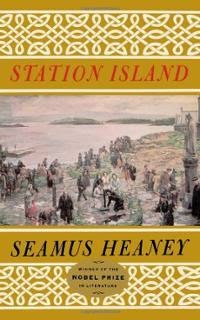Have
you ever geared yourself up to write—the muse is glowing, the prose is flowing—you
hasten to your desk to find:
·
your software isn’t working
·
your laptop battery is dead
·
your pen is blotting
·
your paper is wet (or scribbled on by your
three year old)
·
the “e” key on your Underwood is making
plodgey “o’s”
You
are not alone.
 |
| St Brigita of Sweden |
VictoriaLord, writing for The Ultimate HistoryProject*, details the challenges facing the medieval scribe, from poor
utensils to poor light, to mind wandering and fatigue, in “The Medieval Scribe and the Art of Writing”.
Medieval
scribes frequently recorded their feelings about their work, the tools they
used, and the conditions under which they copied out texts. The monks jotted
these remarks down in the margins of their otherwise carefully penned manuscripts.
These informal, sometimes witty notes, known as marginalia, hint at the joys
and miseries of life as a scribe. While a few describe the beauties of
nature or a lovely day, many enumerate complaints or excuses.
A typically short comment in one manuscript reads simply, “A curse on thee, O pen,” while a longer message enumerates the scribe’s difficulties that particular day:
“Cithruadh Magfindgaill wrote the above without chalk, without pumice, and with bad implements.”
A typically short comment in one manuscript reads simply, “A curse on thee, O pen,” while a longer message enumerates the scribe’s difficulties that particular day:
“Cithruadh Magfindgaill wrote the above without chalk, without pumice, and with bad implements.”
 |
| Laurentian Library manuscript open to the story of St Brigit and the sunbeam |
Such
things we have often heard before, but Lord, who studied Paleographology at University
College Dublin, has many more interesting tidbits in her short article. For
instance:
Historian and
professional scribe Timothy O’Neill argues that the best medieval scribes were
probably young teenagers. Scribes wrote in bitter cold and searing heat.
They worked as long as the light was good enough to see by and their marginalia
record their fatigue. The work was so pressing that an abbot might grant them
permission to skip prayer services so they could continue while the light was
still good. Excellent eyesight, usually a trait that disappears with age,
was vital to the task. The librarian assigned the text to the scribe.
Scribes didn’t choose what they wanted to copy: the work consisted of
mechanical transcription rather than intellectual exploration.
So when you
find yourself baffled by your implements, weary of your wares, burdened by the
vicissitudes of the writers’s life, remember this poor scribe, who jotted on
his carefully copied manuscript:
“Now
I’ve written the whole thing,
for
Christ’s sake, give me a drink.”
And in the
meantime, have a look at Lord’s full article.
*The
Ultimate History Project promotes high-quality, cutting-edge historical
scholarship intended for everyone.
In recent years, an academic job crisis has led many highly trained historians to leave their profession. The Ultimate History Project draws on the skills of many of these scholars, providing them with an opportunity to publish and promote their scholarship. The Ultimate History Project also encourages faculty members to write for the general public and provides a forum for academically trained historians to work alongside avid genealogists, independent historians, and collectors, enabling them all to collaborate and learn from one another.
The creators of The Ultimate History Project believe that all history-lovers deserve accurate, interesting, and easily accessible history. We love history as much as you do, and we want to share it with you!
In recent years, an academic job crisis has led many highly trained historians to leave their profession. The Ultimate History Project draws on the skills of many of these scholars, providing them with an opportunity to publish and promote their scholarship. The Ultimate History Project also encourages faculty members to write for the general public and provides a forum for academically trained historians to work alongside avid genealogists, independent historians, and collectors, enabling them all to collaborate and learn from one another.
The creators of The Ultimate History Project believe that all history-lovers deserve accurate, interesting, and easily accessible history. We love history as much as you do, and we want to share it with you!

%2B1496-97.jpg)




%2B1494.jpg)
